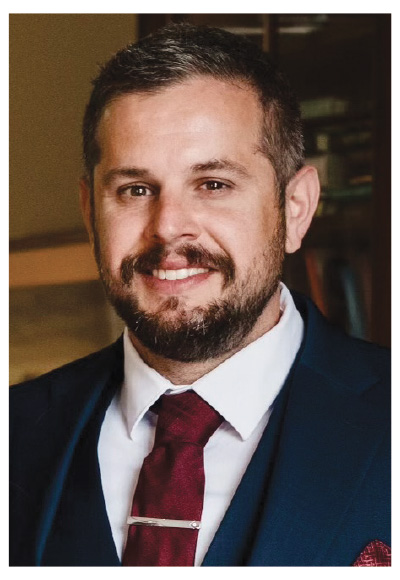

By Esther Haviland
John Drenth, a December 2023 graduate of the Master of Science in Food Safety (MSFS) degree program, is the 2023 recipient of the Edward & Mary Mather Outstanding Food Safety Student Award (Mather Award).

The Mather Award is supported by the MSFS program’s founding director, Dr. Edward Mather, and his wife, Mrs. Mary Mather. The award recognizes a student who excelled in their final food safety non-thesis project. Faculty judges review and score projects on originality, quality, and application to a solution for a food safety problem.
“I appreciate the honor, and I’m thankful to the professors who helped guide me through the project,” says Drenth. “It was a lot of work and time spent, so it’s nice to know the paper was well-received.”
Drenth’s applied project, A Systematic Review Comparing United States and European Union Regulations, Issues, and Advancements in Monitoring Seafood Fraud, investigates how the United States (US) and the European Union (EU) govern seafood fraud. The review found that seafood consumption has nearly doubled within the last 50 years, and the issues surrounding seafood harvesting and production are evident in both the US and EU. The findings suggest that although the US and EU share similarities in their regulations and Hazard Analysis and Critical Control Points (HACCP) systems, the enforcement of these regulations differs significantly between the two entities. This work recommends that the US and EU collaborate to clearly define seafood fraud and strengthen regulations for both governments.
“The food law class and the Preventive Controls Qualified Individual (PCQI) certification course in the MSFS program ignited my interest in how food products are regulated, as well as the roles governments and companies play in ensuring food safety,” says Drenth. “As I thought about food fraud and did some initial research, I found that the topic of seafood fraud was relatively common and thought it would be an interesting avenue to compare how the US and the EU go about combating it. I also wanted to evaluate the pros and cons of each area and identify any EU programs that might benefit the US.”
Drenth is an operations manager at Food Safety Net Services (FSNS) in Plainwell, MI, where they perform third-party microbiological testing for pathogens on food products. During his ten years with FSNS, he’s worked his way up in the company, holding positions as a pathogen lab analyst, microbiologist, senior microbiologist, and lab supervisor.
During his tenure with FSNS, Drenth made use of the company’s tuition reimbursement program to obtain his Bachelor of Science in Biology from Western Michigan University.
“After completing my undergraduate degree, I felt it would be beneficial to gain more knowledge in food safety, and the MSFS program came highly recommended by my employer,” says Drenth.
“This master’s degree provided me with a well-rounded foundation and knowledge base, making me more valuable to my company and more competitive as I continue to build my career in
the food safety sector.” 